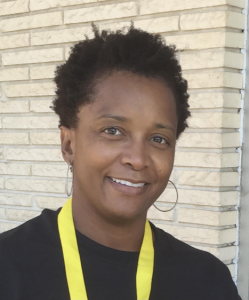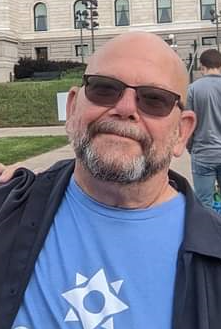[Guest blog by SMART Facilitator Rick Kuplinski]
Among the things that made SMART Recovery my choice in peer support is its respect for multiple pathways to wellness and respect for each of us having the power to decide how best to deal with the behavior we defined as problematic. Along those lines, I appreciated that SMART did not require me to label myself in any way I felt did not empower me to change. (In my case, that word was alcoholic, which always felt like the round hole through which the hammer of stigma was pounding my square peg.)
In that spirit, I have extended my power of choice to how I think about my process of going from being someone with severe alcohol use disorder to becoming someone who doesn’t drink. That’s because the word recovery never felt especially motivating to me. Why would I want to return to a normal state of health, mind, or strength? I’d been abusing alcohol since I was a teenager! So, where to return? What was ever normal?
No. I wanted something more. I wanted to draw a line. Make a clean break. Get off to fresh start. I wanted to write the next chapter of my life based on a process of exploration of who I can become and how I can relate differently to the world around me. In a word: Discovery!
Being in Discovery is more empowering to me. I like the idea of traveling to new destinations vs. kicking the can down the same old roads. It has kept me engaged in my process long after my final drink and the last time I felt an urge. Now as an ex-drinker, I am still engaged daily in the process of exploring how I can continue to use SMART Recovery’s tools and strategies to deal with life’s everyday situations and challenges.
Here are just some of the things we can discover through participation in SMART Recovery.
We are the motivated, goal-oriented people we thought we were. Our experience with addiction can make us doubt we are that same people who accomplished major goals throughout our lives once we set our minds to it. For example, I was constantly in the cycle of ambivalence; hating what alcohol was doing to me half of the day while spending the other half rationalizing, preparing, and then executing my next drinking plan. It made me wonder whatever happened to the guy who set and accomplished goals like earning that promotion or running that first marathon. Why couldn’t I be as resolute when dealing with my addiction? Then I discovered the Cost-Benefit Analysis (CBA) tool. I admit that it took me several tries to work it thoroughly, honestly, and specifically enough to have maximum impact. But when I did, I saw more clearly what alcohol was doing to me. I changed my goal from moderation to abstinence. And I got to work on making a plan, working the plan, and doing what it takes to get things done.
Our values are both effective guardrails and useful compass points. We all have things we consider most important in our lives, but often we do not take the time to list them, to prioritize them, and then to evaluate how we can better align how we live our lives with these values. For me, working the Hierarchy of Values (HOV) tool was a moment of reckoning. I discovered that while I tell myself that values like family, health, and personal growth are central to my existence, these were things I routinely abandoned as soon as the clock struck happy hour. Now my values are more than abstractions. They keep me on the road of sobriety. Plus, they provide direction for how to live my life beyond addiction.
Emotional Wellness is a thing. I remember a subject in my early schooling that was simply called “Health.” I remember that as being the place where I first learned how to sneeze properly, to always eat my vegetables, and to never run while holding scissors. But establishing healthy boundaries? Practicing acceptance? Distinguishing the difference between rational and irrational thinking? Recognizing cognitive distortions? I don’t remember these being part of the curriculum, either then or in all my later years in the classroom. Maybe that’s why I was never good at “the feels.” Maybe that’s why I drowned any hint of having to deal with stress, anxiety, or even happiness(!) in a big glass of my something-something. But nowadays? Managing emotional wellness is an important aspect of my self-care, and it pays daily dividends. The SMART Recovery ABC Tool is now my Swiss Army Knife of emotional wellness, i.e., one tool with many uses for managing how I react to the things that happen to me or around me.
Lifestyle Balance is a “Zone of Discovery.” Do our lives falling out of balance lead to addiction? Or does addiction cause our lives to fall out of balance? I don’t think there is a definitive answer to this chicken-or-egg question. But I do know this: My life in addiction was going off the rails, and I needed to work Point #4 of SMART Recovery’s 4-Point program, Lifestyle Balance, with as much gusto as I was the other three points. I’ve been especially excited exploring my VACIs (Vital Absorbing Creative Interests) that, as in says in the SMART Recovery Handbook, “can help bring the simple pleasure of living back into your life.” Point #4 and VACIs have led to many important discoveries. After years of hitting the snooze button to avoid the panic of facing another day hungover (or still drunk?), I now rise before the alarm and find that my days are much better when I start them with a general plan for being both busy . . . and balanced. Whereas once I swore that “mindfulness” simply wasn’t for me, I now find that this is exactly what I am doing when hiking, my newly discovered passion. And I am finding that being of service by supporting others as a SMART Recovery facilitator is one of my greatest win-win discoveries because it benefits me as much as I hope it is helping others.
What discoveries lie ahead for you? What will be the benefits of your journey that go beyond simply not being dependent on your substance or behavior? What will be your collection of experiences that show you that life beyond addiction is better than life in addiction (or even before)? As with all journeys, it begins with the first step and perhaps approaching the thing called recovery in the spirit of discovery.
###
To find and in-person or online meeting go to the “Meetings” tab at www.smartrecovery.org




